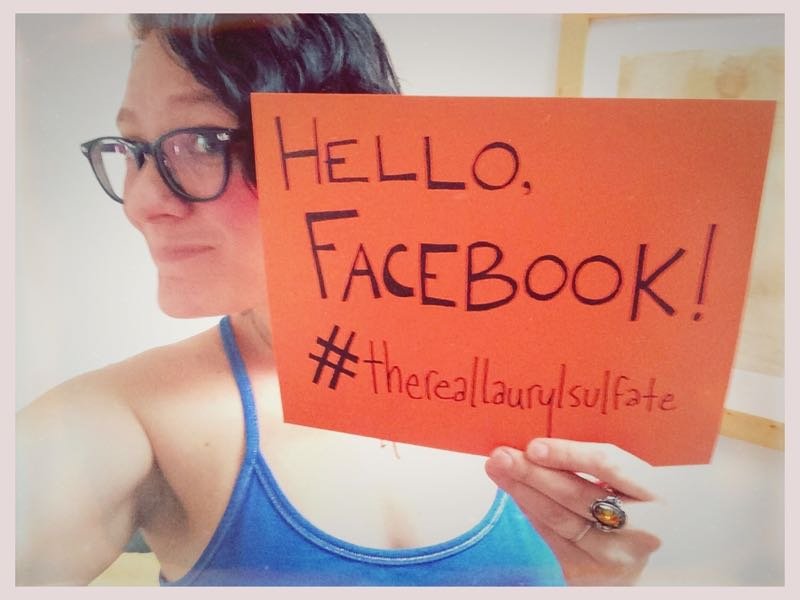Whether or not a person should be able to use their real name on Facebook has become an issue of controversy. Many users have made strong arguments that just because a name appears on their driver's license doesn’t mean that is the name with which they identify – personally, professionally and socially.
Originally, Facebook staunchly enforced a "real-name policy" with users in order to better ensure safety in the online community. However, the irony of this was quickly made clear by people who prefer to use a chosen name rather than their legal name for safety-related reasons.
Lauryl Sulfate, who lives in Shorewood, signed up for a Facebook account with a pseudonym to protect her identity. She does not use her legal name in her online, nor in her personal, life – hence it is not included in this article – because she does not want a former boyfriend to find her.
"I was stalked and harassed by an ex-boyfriend for five years," says Sulfate. "This is the name that I go by every day."
Sulfate, who is a singer and musician, says because she performs publicly and regularly with a band and has a strong and easy-to-access online presence, it is even more necessary for her to stay anonymous.
On Dec. 15, Facebook suspended her account, which Sulfate had for nine years. In the past couple of years, Facebook has suspended millions of accounts, and some claim the enforcement of "real names" has been inconsistent and targets vulnerable populations such as the LGBTQ and Native American communities.
Facebook's current policy statement is found on its "Community Standards" page: "People connect on Facebook using their authentic identities. When people stand behind their opinions and actions with their authentic name and reputation, our community is more accountable."
Around the same time that Sulfate’s account was disabled, Facebook also issued a statement saying it would make exceptions to the "real name" rule, but weeks later, Sulfate remained locked out of her page.
After an account is disabled, Facebook requires the user to upload one or two legal forms of identification, depending on the type of identification. Only one form is needed if it's a driver's license, marriage certificate, passport, etc. Two forms are required if the user provides a credit or library card, school ID, utility bill and other "less official" identification forms.
Sulfate does not have these items with her chosen name on them, but she sent a letter explaining her need for anonymity because of her potentially harmful ex, along with her driver’s license. She also provided music contracts – which had both of her names on them – to prove that she is simply a person in her community known as "Lauryl Sulfate."
Facebook refused to accept her chosen name and changed the name on her page to her legal name, which they gleaned from her driver’s license. She later received a request for approval from Facebook to activate it again.
"I absolutely will not use my legal name on Facebook. Firstly, it's a safety issue for me. Secondly, I believe that people have a right to decide for themselves how they present themselves, online and in real life," says Sulfate.
"I'm not spamming anyone or trolling. This is the name I go by every day. I'm not misrepresenting myself. Facebook calls this their 'authentic name policy.' Who decides what name is 'authentic'?"
If Facebook’s motive is to provide safety and prevent abuse, does it make sense to ban users who are using the service fairly? Does it matter who users "really" are if they are playing nice and not trolling or abusing?
Shakespeare asked "what's in a name?" 400 years ago and today similar questions remain unanswered in the realm of social media.
Molly Snyder started writing and publishing her work at the age 10, when her community newspaper printed her poem, "The Unicorn.” Since then, she's expanded beyond the subject of mythical creatures and written in many different mediums but, nearest and dearest to her heart, thousands of articles for OnMilwaukee.
Molly is a regular contributor to FOX6 News and numerous radio stations as well as the co-host of "Dandelions: A Podcast For Women.” She's received five Milwaukee Press Club Awards, served as the Pfister Narrator and is the Wisconsin State Fair’s Celebrity Cream Puff Eating Champion of 2019.







